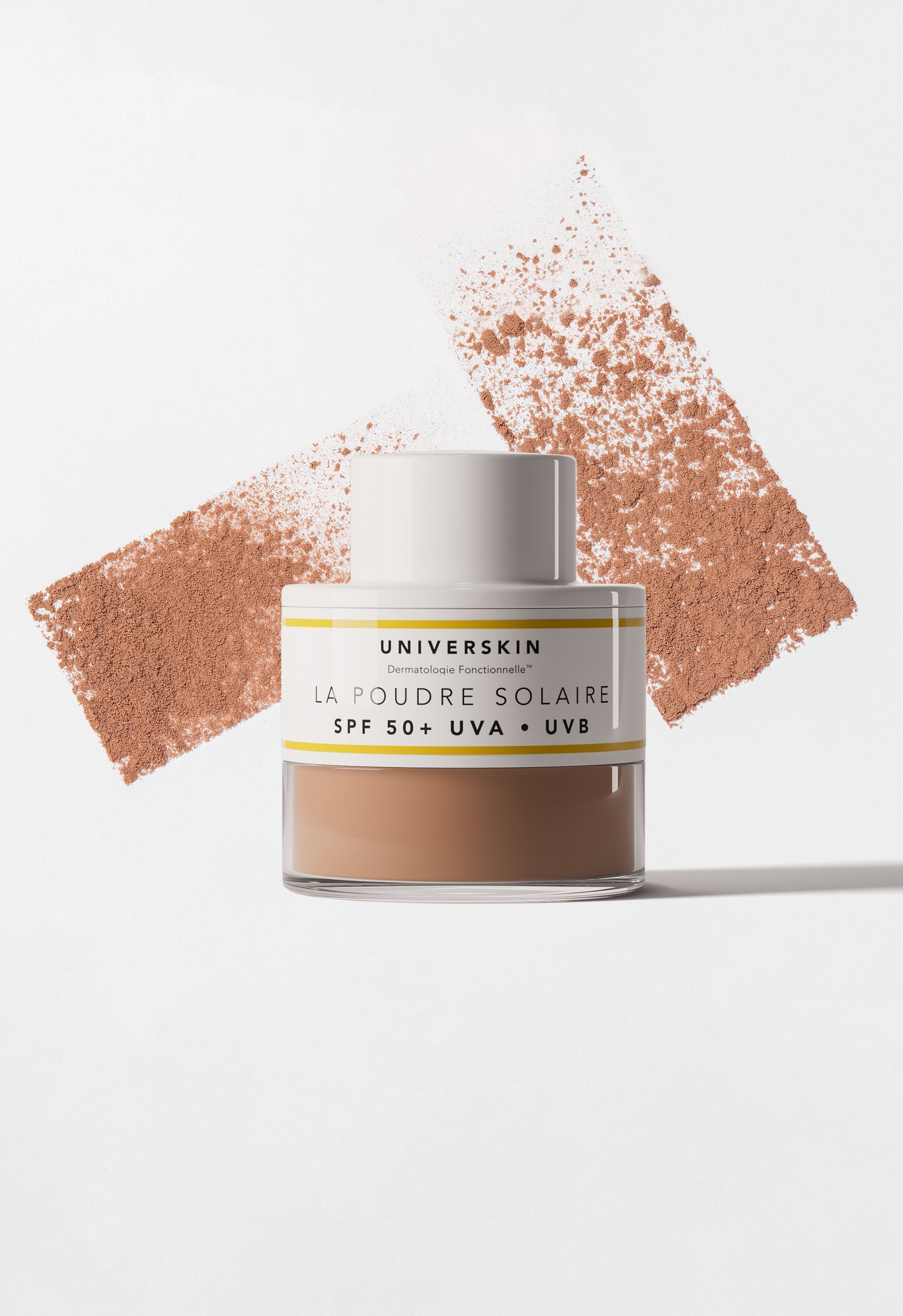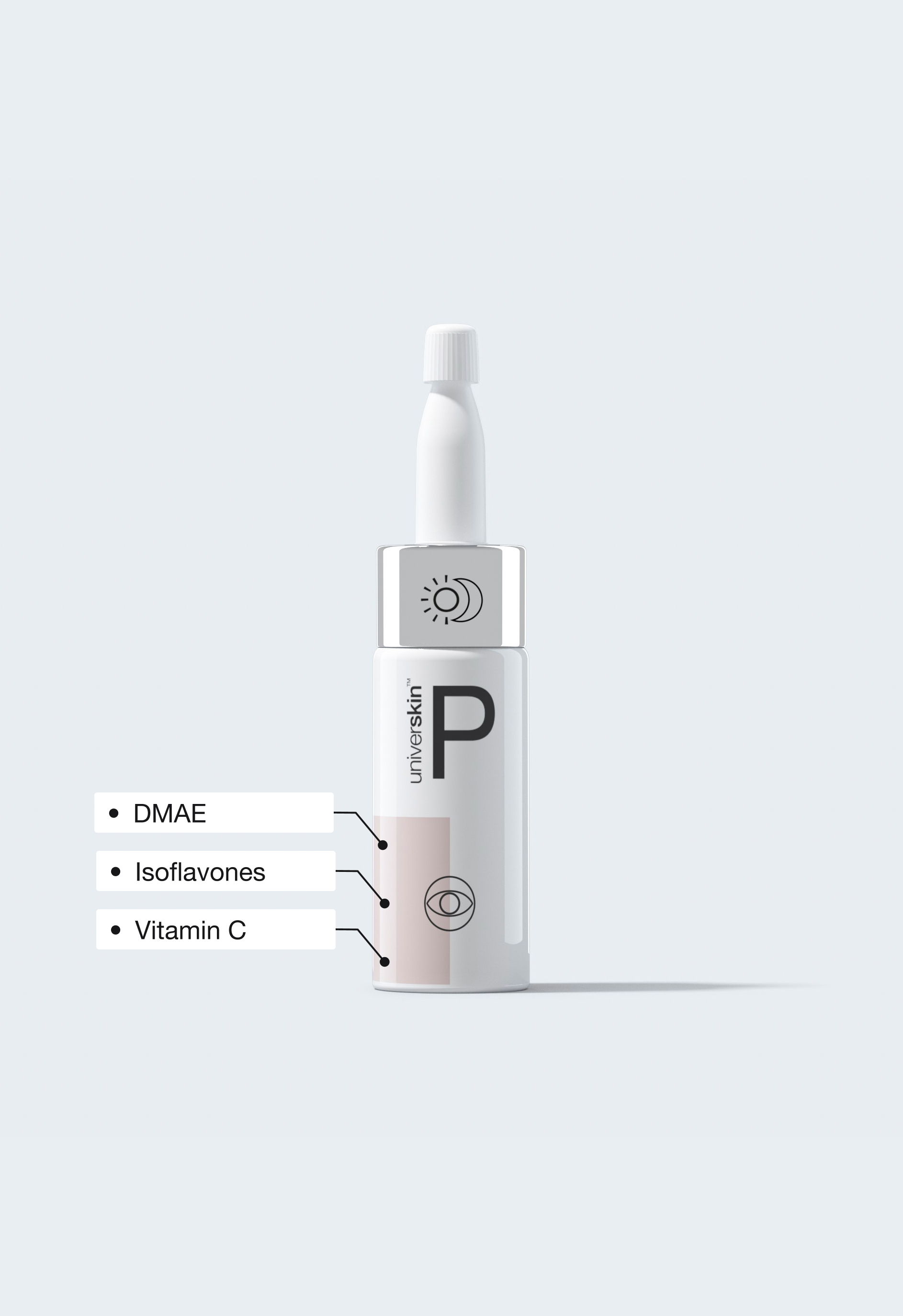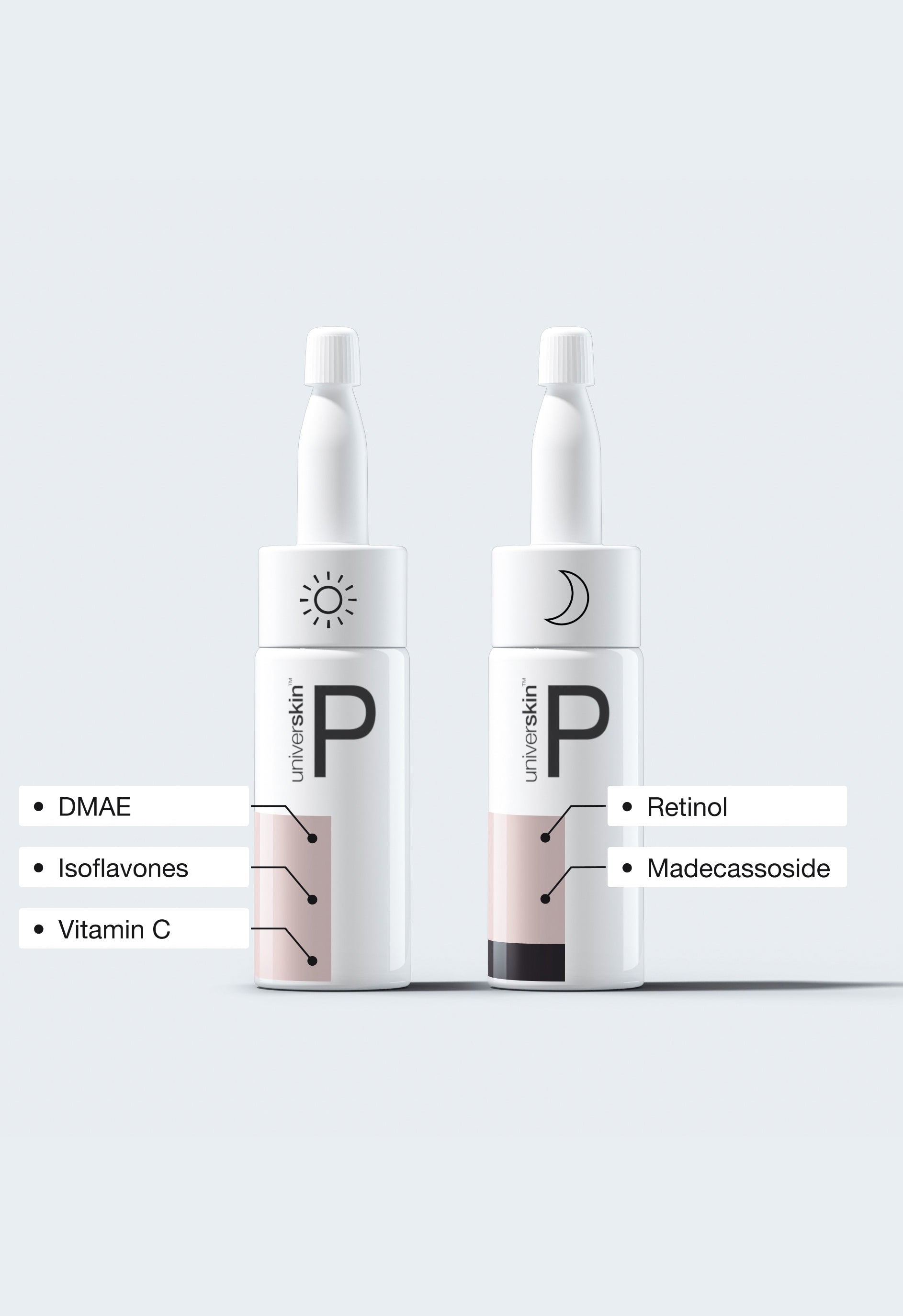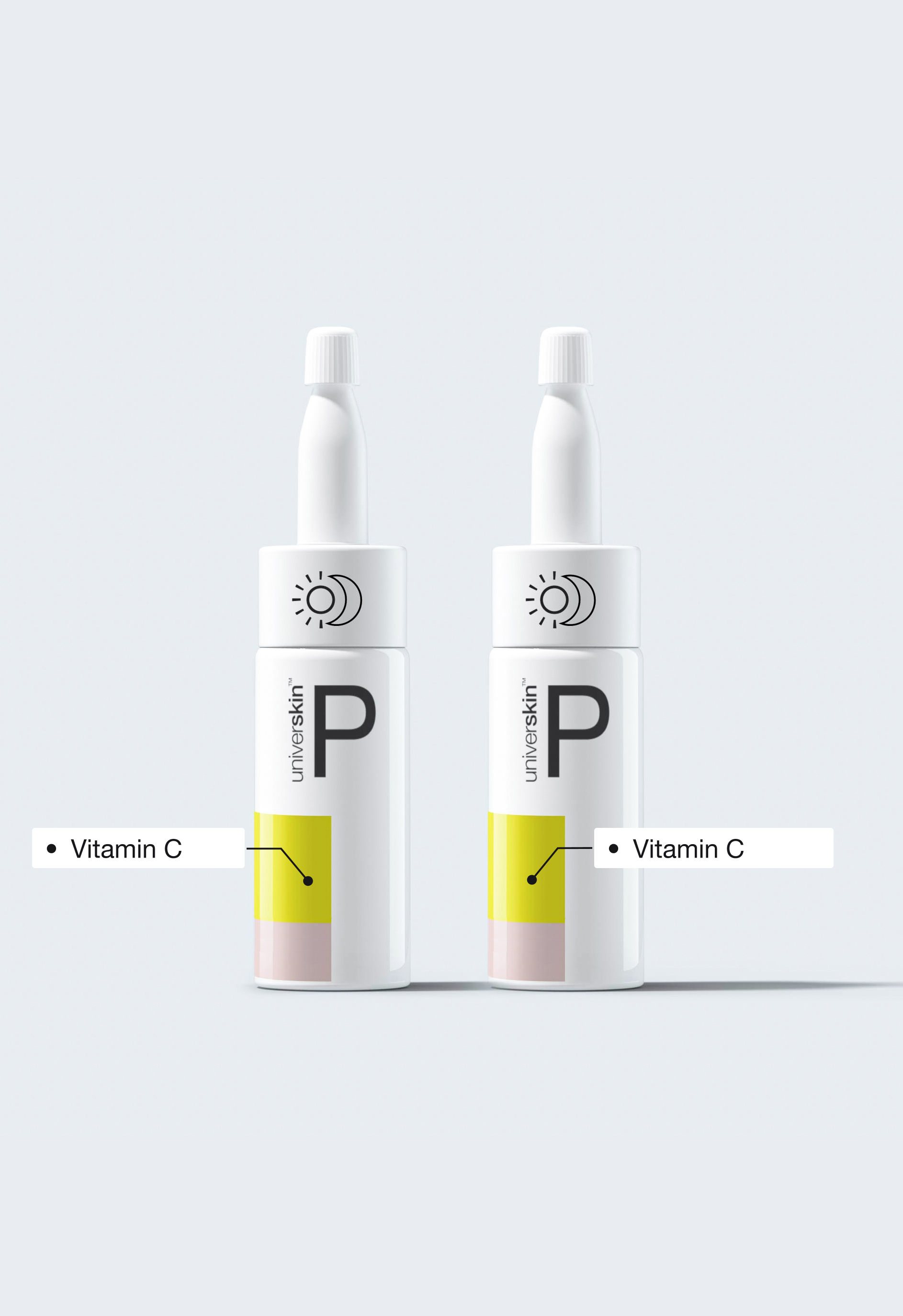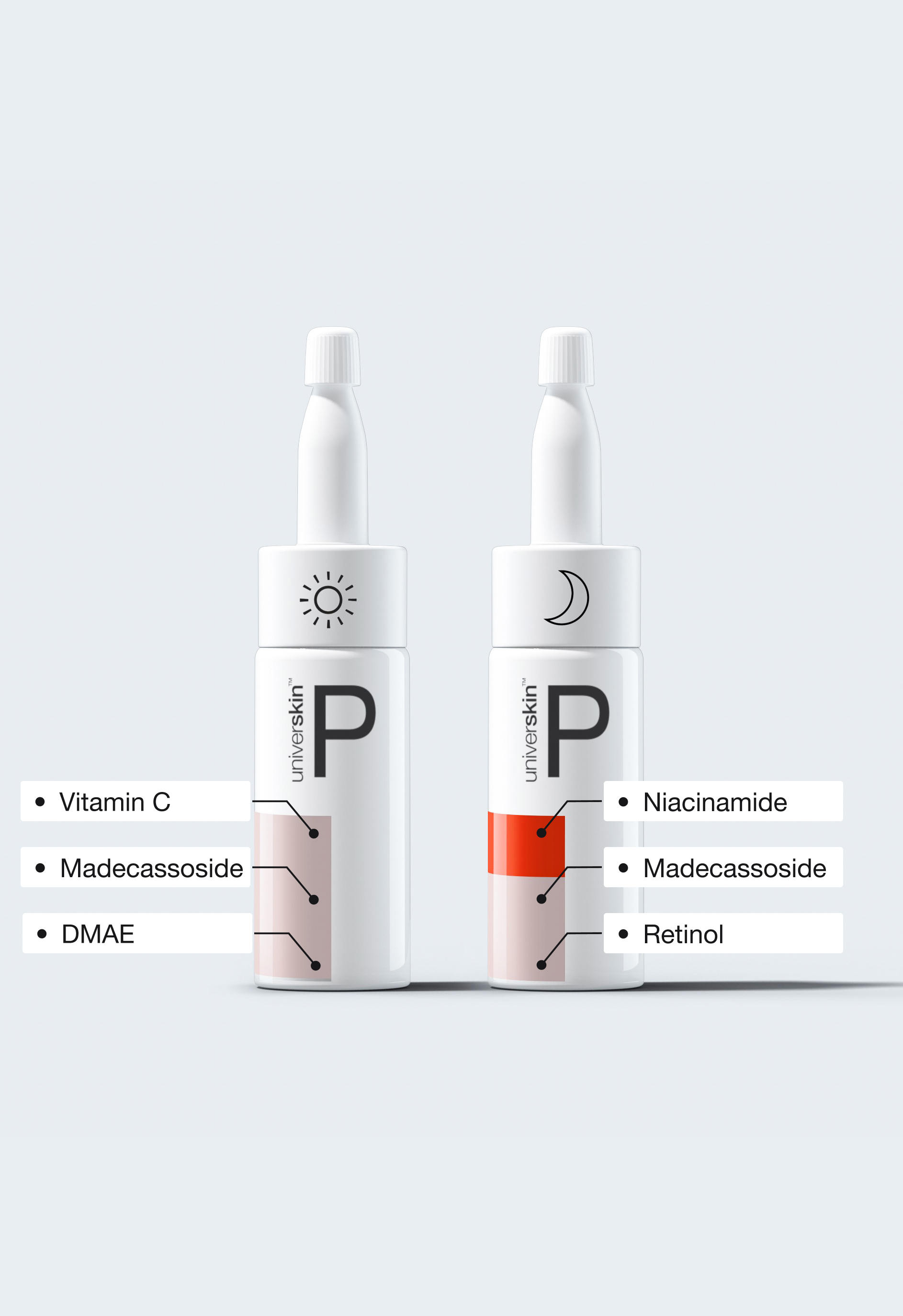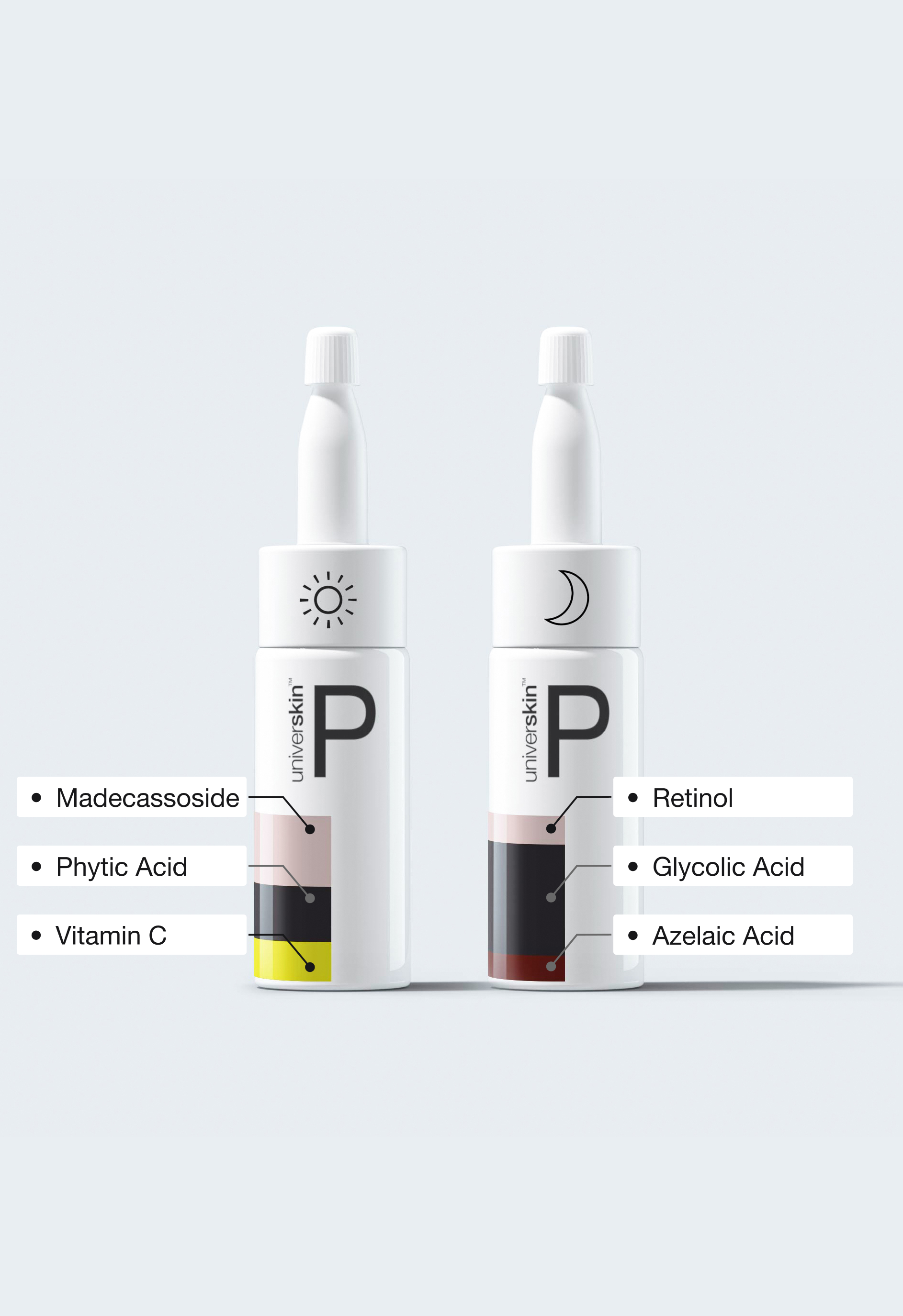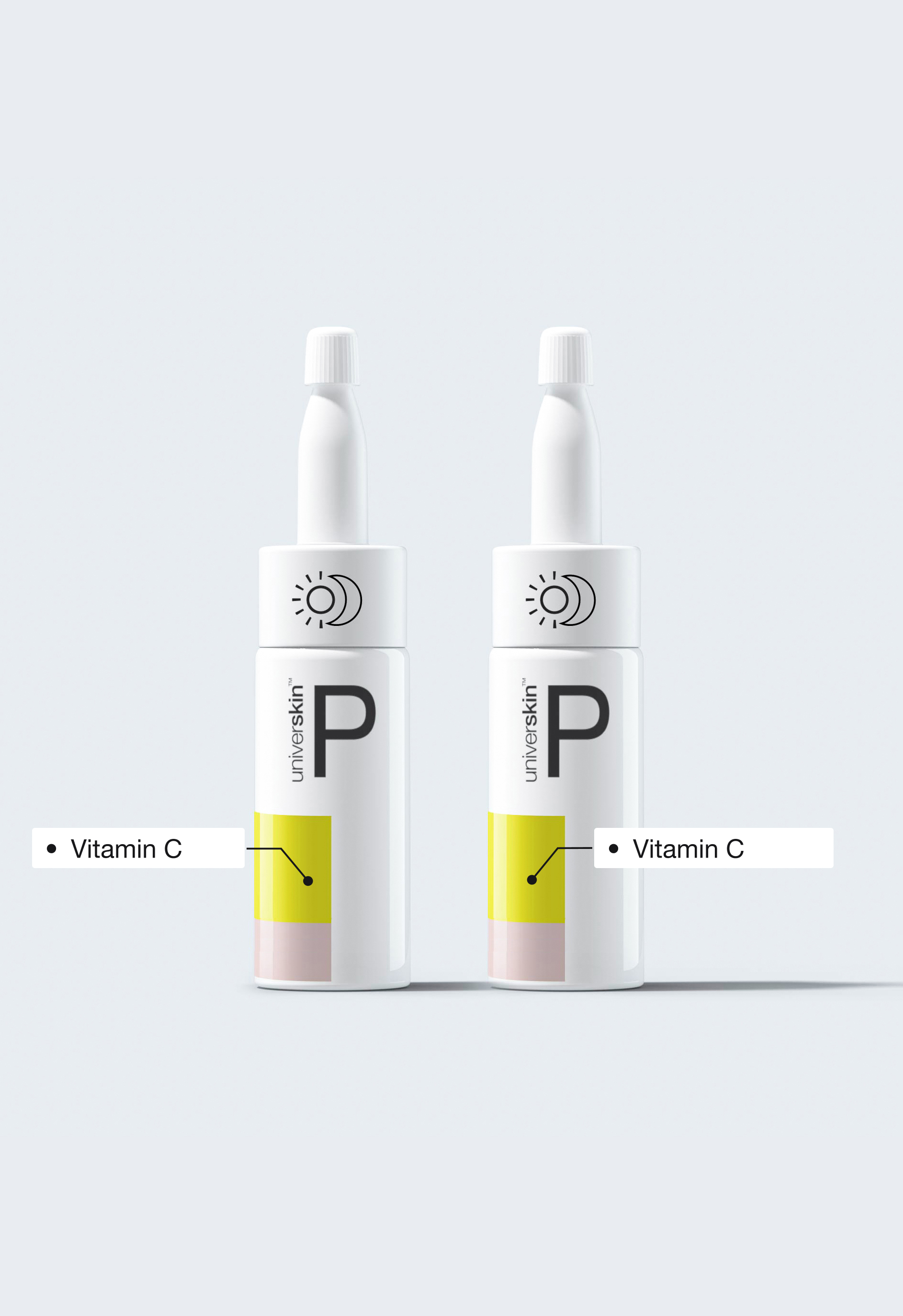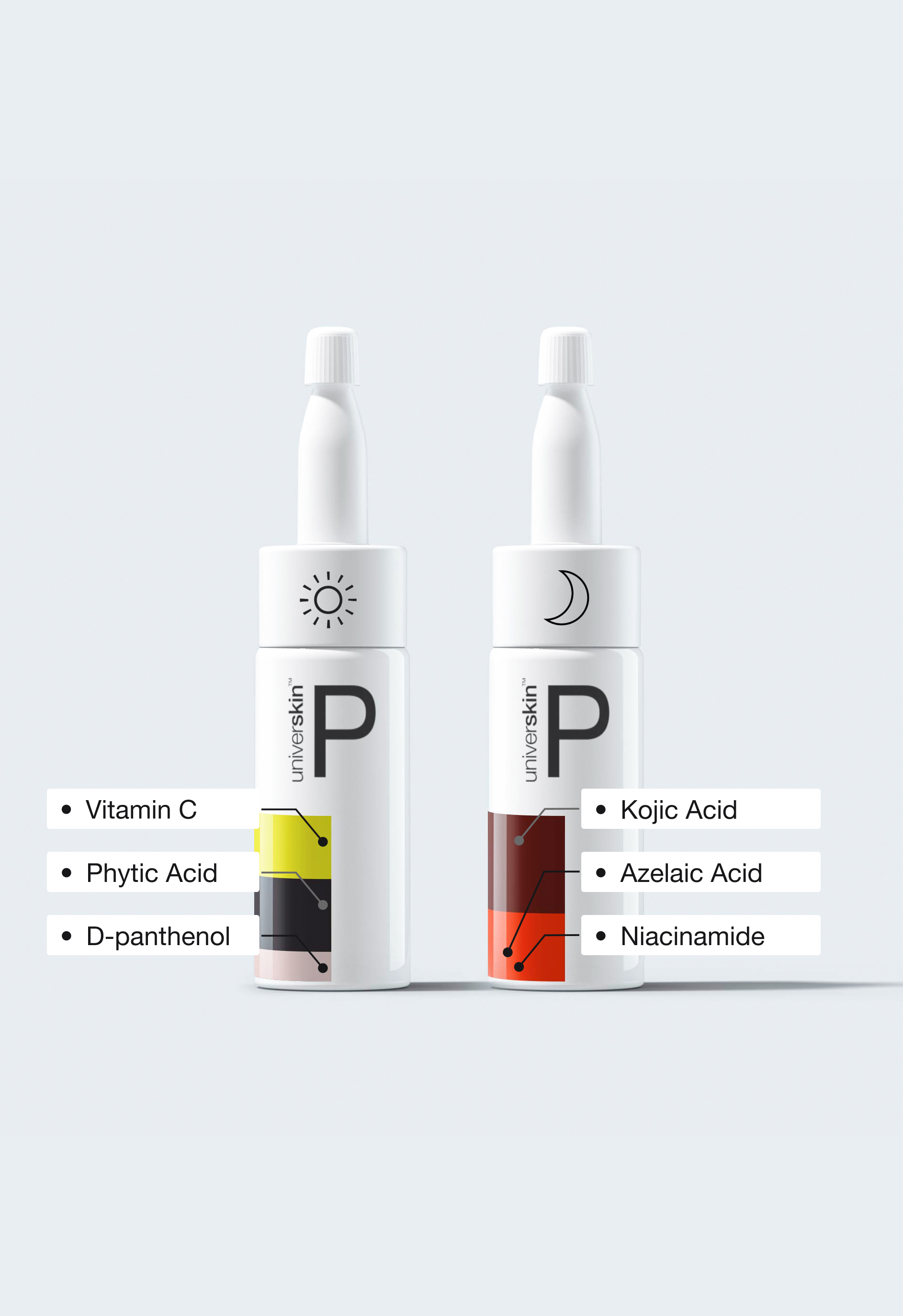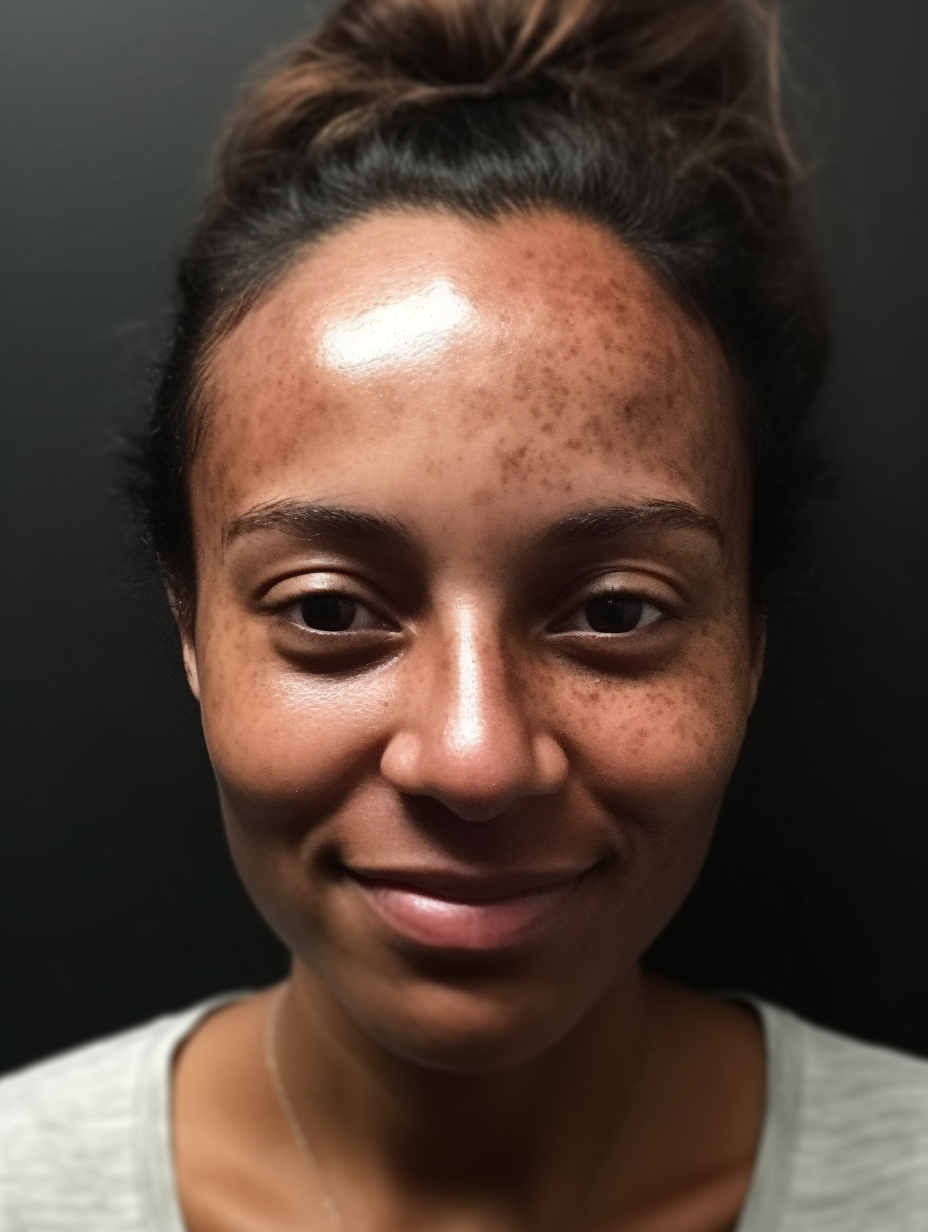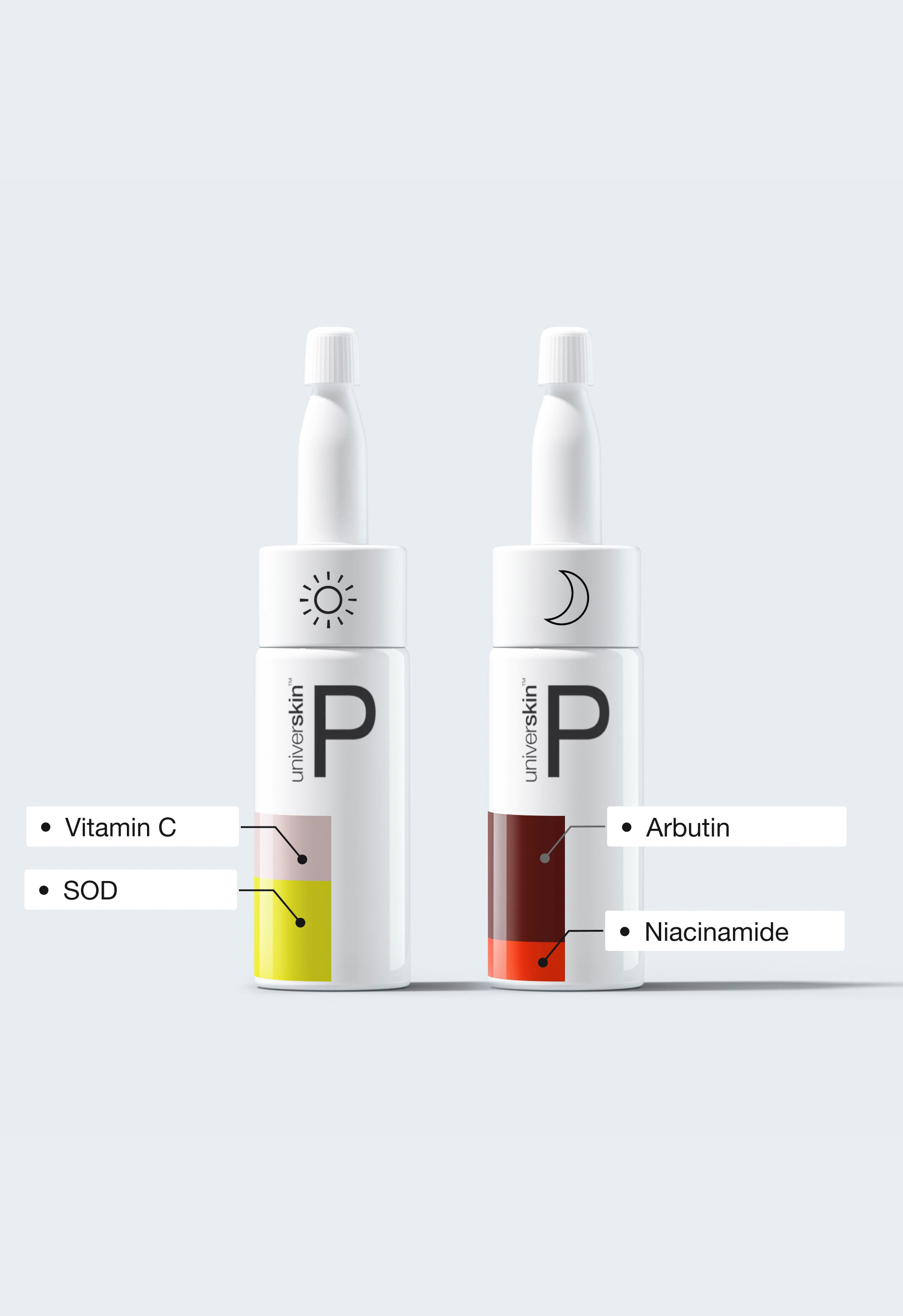VITAMIN C
Known as L-ascorbic acid by scientists, vitamin C is an essential vitamin for the human body, as humans cannot synthesize it and need an external supplement. It is a popular active ingredient in skincare products due to its multiple benefits for the skin. It is known as a booster of skin firmness and elasticity. A potent antioxidant, it helps improve the appearance of wrinkles and fine lines and brightens the skin tone.
Concentration
It has been demonstrated that in most cases, for a product to be of biological significance, it needs to have a vitamin C concentration above 5%. However, it all depends on the quality of the formulation and its ability to stabilize the vitamin C which is highly unstable. Universkin offers pure Vitamin C at 7% to 21%.
Who Should Use It
Basically, everyone benefits from topical vitamin C especially to help increase firmness, reduce hyperpigmentation, and give the skin an outstanding glow. From a general point of view, vitamin C is a well-documented powerful antioxidant that protects cells from free radicals involved in many skin problems and premature aging.

Can Be Used In Combination With
Vitamin C can be used in combination with other antioxidants, such as vitamin E (contained in the serum P) SOD and ferulic acid, as they work well together against UV damage and photoaging. It can also be used in combination with other active ingredients to enhance the overall benefits to the skin: for example, there are synergies with isoflavones or niacinamide against aging signs and dark spots.
How Often Can You Use It
Vitamin C can be used daily in the morning and/or evening. It is always important to test vitamin C out before making it a part of regular skincare because some people may experience stinging, itching, and dryness after using topical vitamin C. Those with dry or sensitive skin probably should stick with the lowest concentration, i.e. 7%.
Don't Use It If
If you have very sensitive skin or allergies, it is always recommended to test products on a small skin area before using on the face. It can be problematic for those with oily skin. It is recommended to use Vitamin C separately from Retinol, exfoliants such as AHAs and BHAs, other acids, or anti-acne treatments and use them at different times of the day.
Origins of the Ingredient

The Kakadu plums have the highest concentration of vitamin C. The main sources of vitamin C are fruits especially acerola cherry, citrus fruits, kiwi, guava, and vegetables, such as red peppers, tomatoes, kale, and broccoli. The discovery of Vitamin C dates back to the 16th century when sailors were found to be suffering from a disease known as scurvy. This disease was later discovered to be caused by a deficiency of Vitamin C, and it was eventually discovered that citrus fruits could prevent and cure it. The first synthetic Vitamin C was produced in 1933, and the use of Vitamin C in skincare began in the 1970s.
Universkin uses a synthetical L-ascorbic acid to have a consistent composition, quality, and high-purity active ingredient. Universkin offers pure vitamin C rather than its derivates (ascorbyl) which are less bioavailable and efficient.

Chemical Composition
Vitamin C is the generic name of L-ascorbic acid. Vitamin C is purely the L-enantiomer of ascorbate; the opposite D-enantiomer has no physiological significance. Both forms are mirror images of the same molecular structure. Its structure is related to glucose. Vitamin C is a white crystalline powder.

Mechanism of Action
Vitamin C is very important for the formation of collagen, one of the proteins that give skin firmness. Vitamin C is necessary for the proper processing of collagen and helps keep it from breaking down. It also helps activate cells that make new collagen. Vitamin C is considered a good depigmenting agent and is generally used as an adjuvant against brow spots and patches. It acts as an antioxidant, preventing the production of free radicals that trigger hyperpigmentation and premature skin aging.
Benefits
Vitamin C can help to brighten the skin, even out the skin tone, reduce the appearance of fine lines and wrinkles, and improve the overall health and appearance of the skin. It also helps to boost collagen production, which can improve the skin's firmness and elasticity. It has been shown to enhance the effects of certain treatments such as laser resurfacing, chemical peels, and microdermabrasion. It also helps to protect the skin from UV damage. However, it should not be used as a replacement for sunscreen. It should be used in combination with a broad-spectrum sunscreen for maximum protection. it is a key player in the antioxidant network of the skin.
Stability
Vitamin C is highly unstable and can degrade quickly when exposed to light, heat, and air, with alkali, humidity, copper and heavy metals. To maintain its effectiveness, it is important to use Vitamin C products in airtight and opaque containers and to store them in a cool, dark place. It's really challenging to maintain its stability. It is the ideal candidate for a freshly prepared serum, which is the best alternative available to avoid both complex formulations with chemical stabilizers and potential irritation caused by acidic pH (stability pH level is <4.0). Once added in the serum, its stability is preserved until the end of the bottle.
In conclusion, Vitamin C is one of the key active ingredients among firmness boosters and antioxidants. It can provide many benefits for the skin, including, reducing fine lines, wrinkles, and sagging, brightening and improving the overall health and appearance of the skin.
It's important to consult a skincare professional or a dermatologist if you have concerns about using Vitamin C.
Featured collection
